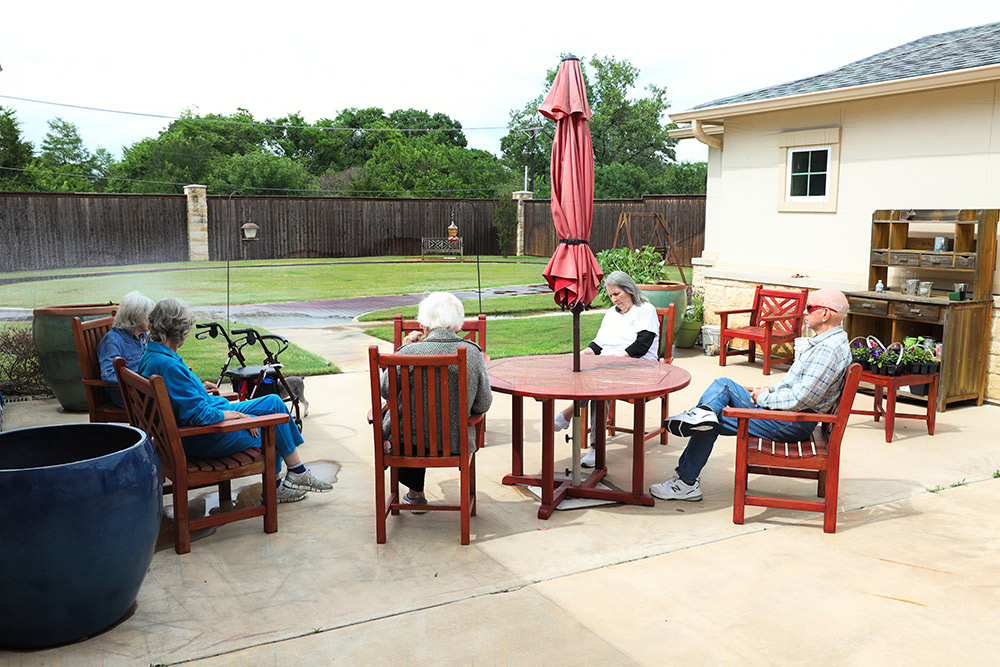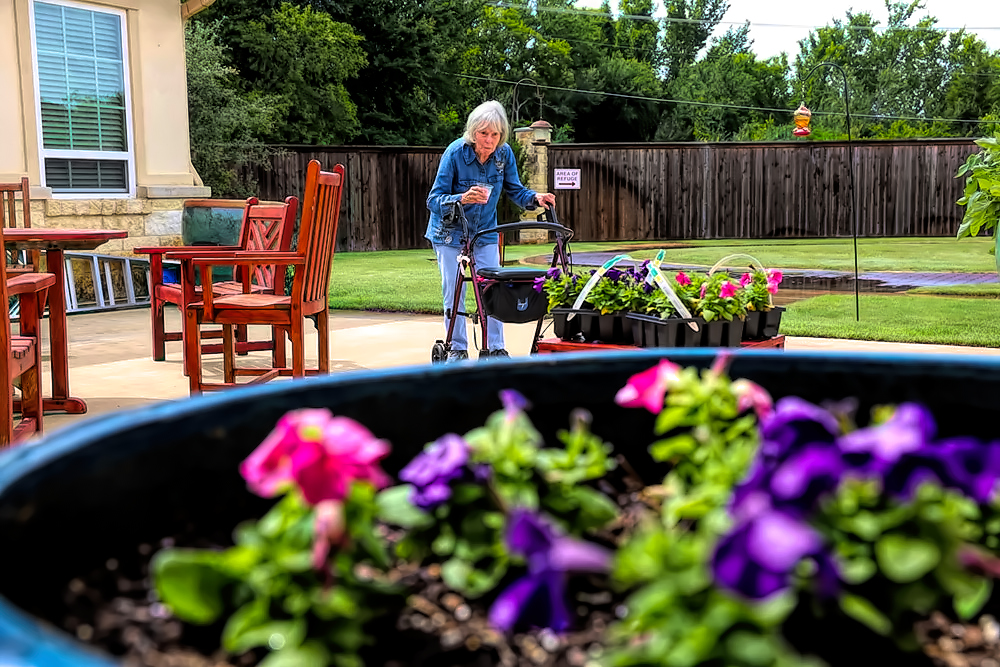Memory Care vs. Nursing Home: Know The Differences

Understanding the levels of care available to your loved one with dementia is essential for peace of mind as the disease progresses, making it more challenging and often emotional in making the right decisions.
When searching for the best senior care, it’s essential to know the differences between memory care residences and nursing homes and the types of care they offer for family members with health conditions. It’s also important to keep in mind that memory care and assisted living communities are quite different from each other and is a topic I will cover in another article.
Memory Care vs. Nursing Home?
Here’s what you should know about memory care vs nursing homes.
Memory Care vs Nursing Home: What is a Nursing Home?
Nursing homes are known to provide skilled nursing care for residents who may be recovering from trauma, severe illness, or accidents such as a broken bone as a result of a fall.

Nursing homes come in second to hospitals in caring for people with dementia. A nursing facility typically has a licensed physician supervising the patient’s well-being along with registered nurses who remain on call 24/7. There are also other medical professionals such as therapists and dieticians.
If you moved a loved one with dementia into a nursing home, it’s likely that they will get professional medical care and receive support they might not get in other senior housing facilities.
Memory Care vs Nursing Home: What is Memory Care?
Memory care provides full-time custodial care for patients with dementia or Alzheimer’s disease.
Unline nursing homes, memory care facilities like Bader House Memory Care aim to enhance the quality of life of their residents while minimizing dementia symptoms. At Bader House Memory Care, we prioritize training our staff on the ideal practices for caring for dementia patients with their complex dementia behaviors.
Depending on their specialization, memory care communities are equipped and designed differently. They have additional safety features like locked and secured exit doors, alarms, and enclosed courtyards to prevent drifting. Their floor plans are straightforward, with color-coded walls and well-defined spaces to minimize confusion. Our Bader House Memory Care facility is designed in a circular pattern that gives residents the ability to meander around without getting easily lost or hurt.
Memory Care vs. Nursing Home: Expenses and Costs

When choosing between memory care or nursing home it is essential to know the financial obligations.
There are several components and influences that go into determining the costs for each type of senior living community, such as their location, structure, and services. An excellent example is a nursing home located on the outskirts of the city may be significantly lower in cost than one located in the city or along major roads in a metropolitan area.
Estimated Memory Care Costs
According to our research, the monthly median cost of memory care is $5,500 to $8,000. However, this will vary based on location and other service factors. A budget of $4,000 to $8,000 a month is most likely reasonable in this situation.
Some considerations that could help assist with these unforeseen expenses are long-term care insurance (if applicable), some other type of private pay, or a popular option is a reverse mortgage. A reverse mortgage expert you may want to speak with is Kevin Neufeld.
Estimated Nursing Home Costs
Nursing home prices vary depending on whether they are government-owned or privately owned. Government-owned facilities are known to subsidize the costs of their nursing homes, making them cheaper than private alternatives. The median monthly cost for a private nursing home care room as of June 2024 is $9,892, and a semi-private room is $8,821. For state-owned/public nursing homes the median monthly cost for a private room is $7,908 (semi-private room is $7,236).
Considering that, the median monthly nursing home care cost of a privately owned nursing home is $9,892, while a state-owned nursing home is $7,908.
Memory Care
Nursing Home
Cost
The average cost of memory care is $5,500 to $8,000 per month. Costs can range from as low as $4,000 per month in more affordable rural regions to over $10,000 monthly in high-cost-of-living areas.
The monthly median cost of a privately owned nursing home is $9,892, while that of a state-owned nursing home is $7,908.
The national median cost for a private room in a nursing home in 2024 was $9,892 per month.
Activities
The activities in a memory care facility are aimed at helping the residents improve their quality of life.
At Bader House Memory Care, we encourage social outings and supervised exercises to assist in helping the residents maintain a healthy routine.
Nursing homes have fewer activities, mainly because of the health of the patients who aren’t capable of participating in such activities.
Social interaction is encouraged amongst healthier patients. Also, movie nights, board games, and mini-musical events occur once in a while.
Staff Training
The staff in a memory-care facility like Bader House Memory Care undergo professional training to know how to care for simple to complex challenges faced by people living with memory loss.
Nursing homes have various medical practitioners, including dieticians, registered nurses, and physiotherapists.
Who is it for?
Memory Care facilities give care for people with dementia and Alzheimers, typically at the mid-to-late stages of these diseases.
Nursing homes are designed for older adults who require full-time nursing care and have medical issues.
Level of Care
Care and safekeeping are provided for residents at every stage of dementia or Alzheimer’s, including encouragement with activities of daily living (ADLs), medication management, and effective therapies with arts and music.
Nursing homes provide mid-level assisted care that they cannot achieve at home. This includes custodial care like helping with ADLs, such as, eating, dressing up, and getting in and out of bed.
Freedom of Movement
Because of the resident’s condition, dementia patients cannot move around the facility without a staff’s guidance.
In addition, the doors and exits are kept shut to prevent patients from wandering off.
As long as a patient is not bedridden, they can move around the facility with ease. They can visit their loved ones as they please.
Average number of residents
A typical memory care community usually has fewer than 50 residents. At Bader House Memory Care, we limit our homes to just 24 residents at a time.
This allows the trained staff to give patients the best attention and care.
A nursing home accommodates more people than a memory care community. The average number of residents in a nursing home is about 50 to 200 people or more.
Which is Best for My Loved One?

This is a topic of conversation. Ultimately, the choice between a memory care residence or a nursing home comes down to several considerations. The most critical one is the complexity and progression of your loved one’s illness.
For people with dementia, a memory care facility like Bader House Memory Care is the ideal option because it provides specialized care, including memory-enhancing activities that improve the quality of your loved one’s life.
When Should I Select A Nursing Home?
Nursing home services have the advantage of providing extensive medical support for the elderly in their care. So, you should select a nursing home if your loved one has a debilitating medical issue.
You should also take into consideration the length of time that your loved one would require professional support. The benefit here is nursing homes offer both short and long-term care support.
When Should I Select Memory Care?
The first and most obvious indicator is dementia or Alzheimer’s. If your loved one is living with dementia, a memory care facility is where they’ll get the support they require to help them manage the illness better. So, you should choose memory care if you are looking for activities to help slow down dementia.
Summary
Understanding how memory care is different from assisted living facilities is the first step in providing the best care for your loved ones. For patients with Alzheimer’s or dementia, memory care communities provide the support necessary as they navigate this phase of their lives.
At Bader House Memory Care, we provide thoughtful and consistent care for your loved ones with Alzheimer’s or dementia. Our facilities are friendly, simple, and welcoming — designed on purpose to help residents live the best quality of life.
Contact us to learn more about Bader House Memory Care and our vision.




